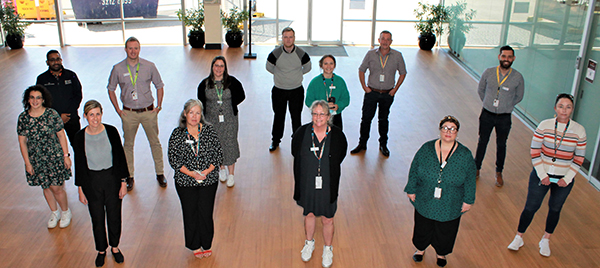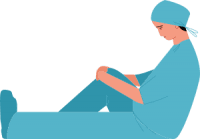 Strengthen our patient safety & quality improvement culture
Strengthen our patient safety & quality improvement culture

The Maternity Education Program provides an open access suite of training and education resources for multidisciplinary clinical teams working across all maternity care models in Queensland. These include simulation-based education packages, interactive 3D animation tools, and face-to-face simulation-based courses.
- 2400 downloads of educational packages
- Interactive 3D animation tools viewed 1200 times.
PROFESSIONALS
COMPLETED
FACE-TO-FACE
WORKSHOPS


THE SYSTEM HAS REDUCED ![]()
 MEDICAL EMERGENCY
MEDICAL EMERGENCY
REPONSE CALLS BY 34%
RBWH has introduced the Queensland Adult Deterioration Detection System (Q-ADDS) and the supplementary Neurological Assessment Chart to improve patient monitoring and appropriate escalation of care for deteriorating patients. Early identification of patient deterioration and clinical intervention are vital components to improving healthcare outcomes for patients. The system has reduced Medical Emergency Response calls by 34 percent.
The Clinical Skills Development Service is playing a crucial role in bringing Human Factors expertise to Metro North and state-wide patient safety and quality improvement initiatives, applying the science of design to improve the systems and tools our clinicians work with, to make care delivery safer for our patients.
 RBWH’s UP LATE initiative, developed with consumer input, addresses key gaps identified in afterhours care at the RBWH, including availability of senior clinicians after hours, lack of team-based care, and reactive approach to clinical deterioration. Additional senior medical and
RBWH’s UP LATE initiative, developed with consumer input, addresses key gaps identified in afterhours care at the RBWH, including availability of senior clinicians after hours, lack of team-based care, and reactive approach to clinical deterioration. Additional senior medical and
nursing clinical leadership positions were created to cover after hours shifts. Sustained improvements in consumer, nursing and medical staff perceptions of afterhours care have been achieved. The program has also improved wellbeing for junior doctors and registrars.
QUALITY OF CARE
TABLE OF CONTENTS
